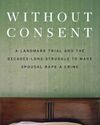Try GOLD - Free
Regulate Use of Force
Reason magazine
|October 2020
“WHEN YOU’RE CONDITIONED TO BELIEVE THAT EVERY PERSON... POSES A THREAT TO YOUR EXISTENCE, YOU SIMPLY CANNOT BE EXPECTED TO BUILD OUT MEANINGFUL RELATIONSHIPS.”

“Through a combination of specific legislative acts, departmental procedures, monopolistic default, and the general effect and aura of the laws they enforce, police have come to a point where, to one degree or another, they are above the law. Not only may (and do) and must police squash rights within the law, but, the degree depending on circumstances and motive, they may also do so outside the law.”
LANNY FRIEDLANDER
“THE COPS: HEROES OR VILLAINS?”
NOVEMBER 1969
AS TENS OF thousands of Americans marched through the streets following the police killing of George Floyd in Minneapolis, city councils, state legislatures, and Congress all wrestled with how to address protesters’ demands for an end to police brutality. One problem is that the standards for how and when police can use force on someone are complicated, and strong-sounding reforms have a funny way of getting neutered at the street level where day-to-day police interactions occur.
New York City banned police from using chokeholds, for instance, but that didn’t stop New York Police Department (NYPD) officer Daniel Pantaleo from killing Eric Garner in 2014. Cities spent money on implicit bias and de-escalation training in the years following the rise of the Black Lives Matter movement, but Floyd still died with a knee on his neck. The number of fatal police shootings has hovered around 1,000 per year since 2015, according to a database created by The Washington Post.
Yet there are concrete policy changes that, taken together, could improve policing and reduce excessive force incidents.
DEFINING THE CONTINUUM OF FORCE
This story is from the October 2020 edition of Reason magazine.
Subscribe to Magzter GOLD to access thousands of curated premium stories, and 10,000+ magazines and newspapers.
Already a subscriber? Sign In
MORE STORIES FROM Reason magazine
Reason magazine
AI vs. Paperwork
AT SEPTEMBER'S NATIONAL Conservatism Conference, Sen. Josh Hawley (R-Mo.) argued Al “threatens the common man's liberty” and that “only humans should advise on critical medical treatments.” Yet Al promises to enhance the human experience by reducing the price of critical services like health care.
1 mins
December 2025

Reason magazine
Q&A Katie Engelhart
THE CANADIAN PULITZER Prize-winning journalist Katie Engelhart wrote the new book The Inevitable: Dispatches on the Right to Die.
3 mins
December 2025

Reason magazine
What Happened After Greta Rideout's Husband Raped Her
WOMAN SHOWS up at the police station and says she would like to press charges for rape.
6 mins
December 2025

Reason magazine
An Alarmingly Broad View of 'Public Health'
DEFENDING COVID-19 POLICIES against legal challenges, government officials relied heavily on Jacobson v. Massachusetts, a 1905 case in which the U.S. Supreme Court upheld a smallpox vaccine mandate imposed by the Cambridge Board of Health.
3 mins
December 2025
Reason magazine
'He Never Got To Go 'Home'
INSIDE TEXAS' SECRETIVE \"CIVIL COMMITMENT\" SYSTEM
25 mins
December 2025

Reason magazine
Inside Vernor Vinge's FBI File
VERNOR VINGE-THE Hugo Award-winning science fiction author who passed away in March 2024—imagined a world where individuals, not governments, held the power.
1 mins
December 2025
Reason magazine
Will Tariffs Steal Christmas?
SANTA CLAUS MIGHT be able to evade customs checkpoints as he magically smuggles toys into the country for the good boys and girls-but everyone else doing Christmas shopping this year could run into some problems.
2 mins
December 2025

Reason magazine
THEY THOUGHT LEGAL WEED MEANT FREEDOM. THEN THE DRONES CAME.
A CALIFORNIA COUNTY TRIED TO USE DRONES TO FIND ILLEGAL MARIJUANA OPERATIONS, BUT IT PUNISHED BUILDING CODE VIOLATIONS INSTEAD.
18 mins
December 2025

Reason magazine
Thank This Klansman for Your Freedom of Speech
A TWO-BIT BIGOT'S SUPREME COURT VICTORY REVERBERATES IN CONTEMPORARY DEBATES.
20 mins
December 2025

Reason magazine
The Art of the Presidential Health Cover-Up
WHEN THE St. Petersburg Times first launched PolitiFact in 2007, its purpose was to assess the veracity of statements made by “members of Congress, the president, cabinet secretaries, lobbyists, people who testify before Congress and anyone else who speaks up in Washington.”
3 mins
December 2025
Translate
Change font size
